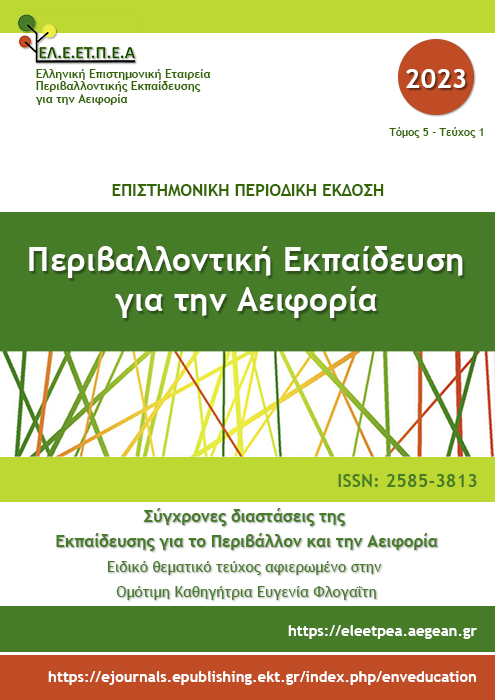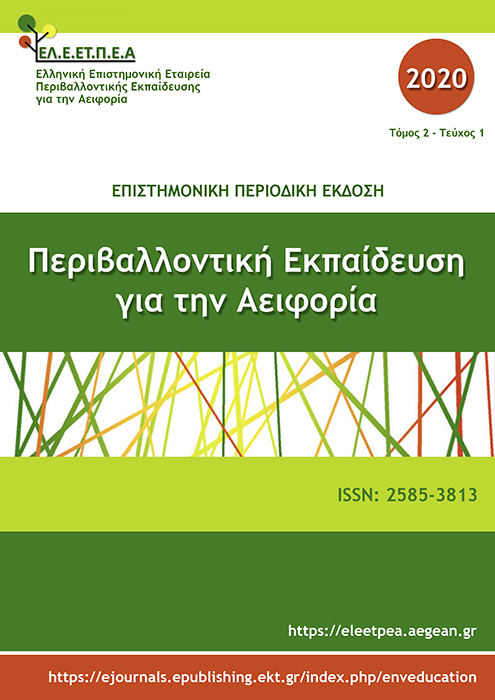Η συμβολή των βιωματικών εργαστηρίων «Παρεμβαίνουσας μη Κατευθυντικότητας» (NDI) στην ανάπτυξη αξιών και ικανοτήτων της αειφορίας
Abstract
The sustainability road/highway is not easy to follow. Radical changes are required, especially in the educational sector which provokes rather than heals the various current crises of the recent decades. We adopted an experiential/transformative/deep educational perspective, integrating it into a post graduate course. Group facilitation along the theoretical lines of the NDI (Νon-directivité intervenante) philosophy showed a convergence between the attitude and behavior changes of the group members and values which are required for the transition towards a sustainable society, i.e.: coming to terms with the possibility of changing their personal educational theory and practice. Developing critical thinking by discovering the perspective of the Other and empathetically “sensing/feeling” the way he/she senses/feels the world. Being thrilled and expressing their feelings. Contemplating/reflecting through a self knowledge footpath upon the deep loneliness and estrangement from both humans and nature that the contemporary individual suffers. Rethinking about epistemology of knowledge aspects. Renewing their relationship with freedom by “exploring” the ingredients of self management and empowerment through democratic procedures. Bridging the gap between the class and the real world by transferring aspects they experienced into the group to their families or their professional milieu. All those changes constitute a really profound anthropological transition towards a Promised Land populated with free humans.
Article Details
- How to Cite
-
Γεωργόπουλος Α. (2023). Η συμβολή των βιωματικών εργαστηρίων «Παρεμβαίνουσας μη Κατευθυντικότητας» (NDI) στην ανάπτυξη αξιών και ικανοτήτων της αειφορίας. Environmental Education for Sustainability, 5(1), 135–151. https://doi.org/10.12681/ees.35773
- Section
- Articles

This work is licensed under a Creative Commons Attribution-NonCommercial-ShareAlike 4.0 International License.
Authors retain copyright and grant the journal right of first publication with the work simultaneously licensed under a CC-BY-NC-SA that allows others to share the work with an acknowledgement of the work's authorship and initial publication in this journal.



